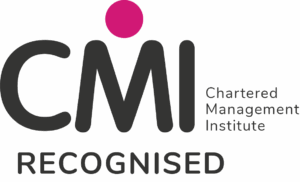Table of Contents
What is Dhul Hijjah?
The month of Dhul Hijjah is one of the holiest periods of the Islamic year. The month of Dhul Hijjah is of increased spirituality, we witness two very special events which are Hajj and Eid ul Adha. These two events are devotion to Allah (SWT).
Many people don’t know that the first ten days of Dhul Hijjah are better than all other days of the year including the days of Ramadan.
Prophet Muhammad (peace be upon him) said: “There are no days on which righteous deeds are more beloved to Allah than these ten days” (Bukhari), meaning the (first) ten days of Dhul-Hijjah.
After the holy month of Ramadan, maybe you feel that you could have done more throughout the sacred month? Perhaps you’ve since let go of that Ramadan feeling?
Well, these beloved ten days of Dhul Hijjah offer another chance to gain immense rewards, have our sins forgiven and reach great levels of piety, Insha’Allah.
A month of increased spirituality and good deeds, to continue with making a difference in people lives. Not only is this the month of Hajj, but also the blessed day of Eid al-Adha.
There were two historic events happened which were Farewell Pilgrimage and Farewell Sermon. These events happened when Prophet Muhammad (Peace Be Upon Him) performed his last Hajj and last sermon on 9th day of Dhul Hijjah AH 10.
The virtues of Dhul Hijjah
The first ten days of Dhul Hijjah are often referred to as a second chance after Ramadan, and the best ten days of the year. This is still a great time of blessing and immense reward for those of us not performing the Hajj year.
In Surat Al-Fajr, Allah (SWT) says:
“By the dawn; And [by] the ten nights.” (Qur’an 89:1-2)
According to many scholars of the Qur’an, the days mentioned as significant enough for Allah to swear by them are the first ten days of Dhul-Hijjah. Whoever is not able to go to Hajj should use this blessed time to complete even more righteous deeds than usual such as honouring one’s parents, giving charity, enjoying what is good and forbidding what is bad, and upholding the ties of kindship.
It is also important to enhance our obligatory acts of worship by we pay our zakat on time and being mindful of our prayers.
This is an ideal time to make dua’a that Allah grants us the opportunity to do so soon for those of us who have not yet completed the pilgrimage of Hajj. Remembrance and fasting are particularly recommended with giving donations.
It is recommended for the Muslim to fast on the first nine days of Dhul-Hijjah, because fasting is one of the best of deeds. In a hadith qudsi, Allah says: “All the deeds of the son of Adam are for him, except fasting, which is for Me and I shall reward for it.” (Bukhari, 1805)
It is reported that “The Prophet used to fast on the first nine days of Dhul-Hijjah and the day of Ashura, and three days each month, the first Monday of the month and two Thursdays.” (Abu Dawood, 2/462)
The ten days of Dhul-Hijjah include Yawm al-Arafah (the Day of Arafah), on which Allah perfected His Religion. Our Prophet Muhammad (Peace Be Upon Him) said: “Fasting the day of `Arafah expiates the sins of two years: the past one and the coming one.” [sins* is between you and Allah]
Remembrance
Our Prophet Muhammad (Peace Be Upon Him) said: “There are no days that are greater before Allah or in which good deeds are more beloved to Him, than these ten days, so recite a great deal of tahleel, takbeer and tahmeed during them.”
The takbeer can also be recited as follows:
Allahu akbar, Allahu akbar, laa ilaaha ill-Allah, Allahu akbar, wa Lillaah il-hamd.
Allah is Most Great, Allah is Most Great, there is no god but Allah; Allah is Most Great and to Allah be praise.
The companions were reciting the takbeer out loud while they were going to the marketplace. When people heard them reciting the takbeer out loud, they would also recite after them.
Let us follow their footsteps and encourage others to recite the takbeer as well, as an act of worship and a proclamation of the greatness of Allah.
As part of our commitment to gain rewards and increase the rewards on those special days, HAD, works all year to provide learning and development to humanitarian sector, NGOs, CSOs, and academic institutions to meet the needs of the humanitarian sector and international development. HAD provide them through training and programmes to support with their learning and skills. We are the link between the beneficiaries and human sector, which aims to empower humanitarians in order to be more effective in their services to beneficiaries.
HAD trained 2,500 participants since it was established in 2013. We are building the capacity of thousands. 145 young humanitarian careers developed through internships.
Your donation would help HAD to improve the skills & knowledge of local charity organisations in countries like Yemen, Syria, Palestine, Iraq, Tanzania, and Kirgizstan. This will allow them to be more efficient and skilled to deal with disasters and emergencies with the local people in their country.
By donating in this blessed month, you not only accessing learning to help each person, but it also impacts on generation after generation and blessings to wider community.
At HAD, we believe in the need to educate, learn and grow – helping each person to gain a critical education, learn much-needed skills and grow a bright and happy future.
Transform a life today for generations to come.
Donate Today







